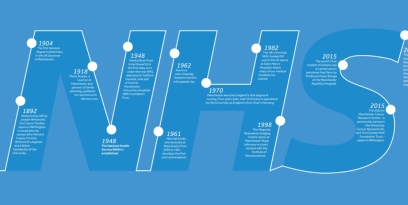For many the prospect of going to hospital for a health check is intimidating. However, in Manchester, cancer researchers have overcome this by bringing lung-cancer screening to supermarket carparks.
Manchester has the highest rate of premature deaths in the country and lung cancer is the biggest contributor to this – causing more deaths than all other cancers combined. With 90% of lung cancers caused by smoking, this disease overwhelmingly affects the poorest communities in the city.
These are precisely the communities which health professionals find hardest to reach. So, in 2016, researchers at the University and the lung cancer team at Wythenshawe Hospital decided to bring the checks to more convenient locations.
Funded by Macmillan Cancer Support, two vans – one containing a room for appointments and basic tests and one that housed a CT scanner – were sent around to supermarkets while invitations were sent from GP surgeries to smokers or former smokers aged 55-74.
We gave many more people an improved chance of fighting this aggressive and devastating disease.
Billed as a less intimidating ‘lung health check’, those who attended were invited to complete a simple questionnaire. From this a risk analysis was performed, with those deemed at sufficiently high likelihood of having cancer sent for a scan in the next van, which only took a few seconds.
Michael Brady from Harpurhey was one of those who made use of the service. He was diagnosed with lung cancer at an early stage after attending a lung health check. He said: “This check-up saved my life. The scan picked up on it – I could have gone two or three years but they’ve caught it at the right time.”
An astonishing 2,541 people completed the tests over a period of a few weeks. More than half of these were scanned and 42 people were diagnosed with lung cancer. As well as cancer, a breath test looked for early signs of chronic obstructive pulmonary disease – another disease linked to smoking. People were also offered access to stop smoking services.
Dr Phil Crosbie was the research lead for the project. He is a researcher at the University and also a lung physician at Wythenshawe Hospital where he specialises in lung cancer. For him, one major success of the programme was the detection of early-stage disease. “Sadly, most patients whom I see already have advanced cancer,” he explains. “But in this programme 80% were at an early stage, a reversal compared to the 75% who are at a late stage that we’d normally encounter for the first time in the hospital.”
The project has been so successful that it is in the process of being extended across other areas of Manchester and other English cities. More funding has been acquired and the data gathered is being published in research papers that are available to health authorities around the world.
For Dr Crosbie, this is the sort of activity where Greater Manchester, with its devolved health system, can really lead the way. “We don’t need to wait for the national authorities to approve a plan here in Greater Manchester. The NHS, councils and the University can devise and execute projects like this which have national impact,” he says.
“We took a real risk with this project and I think many people were expecting tumbleweed outside the vans. In fact, we had huge demand and we gave many more people an improved chance of fighting this aggressive and devastating disease.”
Cancer is one of our University’s research beacons.





